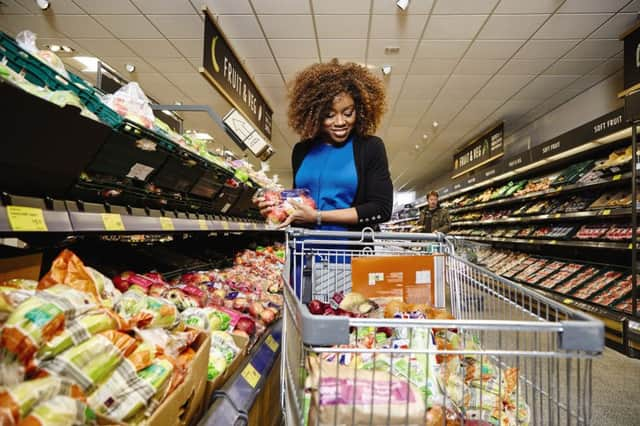British shoppers have spent £146m on Easter eggs, according to Kantar


The latest grocery market share figures, published today from Kantar, show year-on-year supermarket sales growth of 1.4 per cent during the 12 weeks to 24 March 2019. This year’s late Easter, and the fact that Mother’s Day falls outside the reported period, contributed to the market growing at its slowest rate since March 2018 and trimmed an estimated 0.5 percentage points off the overall growth rate.
Fraser McKevitt, consumer head of retail and consumer insight at Kantar, commented: “Despite Easter being a full month away British shoppers have already splashed out £146 million on Easter eggs this year and 42 per cent of households have bought hot cross buns. Some have used the longer lead up to Easter to embark on a spring clean, with sales of carpet cleaners up by 18 per cent and accessories such as cloths and sponges up by 9 per cent compared with this time last year.”
Advertisement
Hide AdAdvertisement
Hide AdMeanwhile, scrutiny over single-use plastics continues, as Mr McKevitt explained: “Consumers are applying pressure on the retailers when it comes to packaging and making their feelings known in the fruit and vegetable aisles – 21 per cent of fruit, vegetable and salad items were sold loose over the past 12 weeks, with sales growing twice as quickly as packaged produce.”
Aldi’s sales increased by 10.6 per cent, helping it achieve a new record high market share of 8.0 per cent.
Mr McKevitt said: “Thirteen million households visited Aldi at least once in the past 12 weeks – now more than those shopping at Morrisons. London holds potential for Aldi – as both its fastest growing region and where its market share is currently lowest – going some way to explain the recently announced trial of the smaller Aldi Local format in the capital.”
Lidl was the second fastest growing supermarket, with sales increasing quicker than last month at 5.8 per cent and market share growing by 0.3 percentage points to 5.6 per cent. Particularly strong growth was seen in bakery goods, frozen foods and biscuits.
Advertisement
Hide AdAdvertisement
Hide AdTesco grew by 0.5 per cent to achieve market share of 27.4 per cent, 0.2 percentage points lower than a year ago.
Mr McKevitt commented: “The popularity of the ‘Exclusively at Tesco’ range continues to rise – its products went home in nearly a quarter of Tesco shopping baskets and sales reached £138 million in the past 12 weeks. The number of sales completed through a deal at the retailer increased to 40.1 per cent, which is notable at a time when the level of promotion across the grocery market has fallen to less than 31 per cent, the lowest in a decade.”
As Easter approaches, Asda has built on two years of continuous growth and increased sales by 0.1 per cent this period to become the second largest retailer in Great Britain, with a 15.4 per cent market share. Asda’s performance has been fuelled by attracting a greater number of affluent households and shoppers making more regular trips.
Sales at Sainsbury’s fell by 1.8 per cent and market share dropped by 0.5 percentage points to 15.3 per cent, according to Kantar.
Advertisement
Hide AdAdvertisement
Hide AdMr McKevitt said: “Despite being overtaken by Asda in main store sales, Sainsbury’s remains the biggest seller of food and drink out of the two retailers and these figures do not include Argos. Sainsbury’s premium ‘Taste the Difference’ line is still a bright spot, with sales rising 4.4 per cent and the brand growing sales of alcohol, poultry and dairy products in particular.”
Growth accelerated at Co-op, taking its market share to 6.1 per cent. New store openings and a focus on own brand lines, which saw strong growth of 6.5 per cent compared with last year, helped generate sales, particularly in London, Kantar said.
Despite attracting an additional 40,000 shoppers over the past year, sales at Morrisons fell by 0.1 per cent this period as visitors picked up fewer items on each trip to the store, according to Kantar.